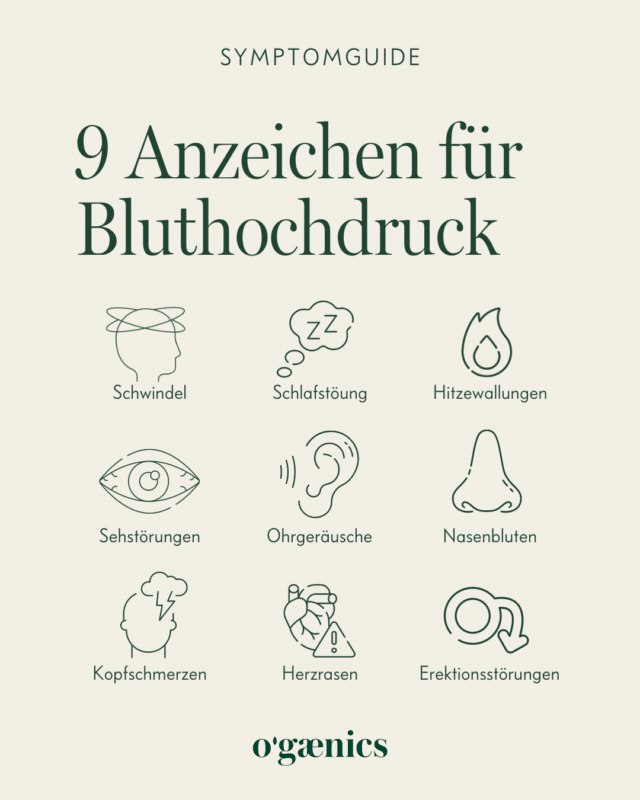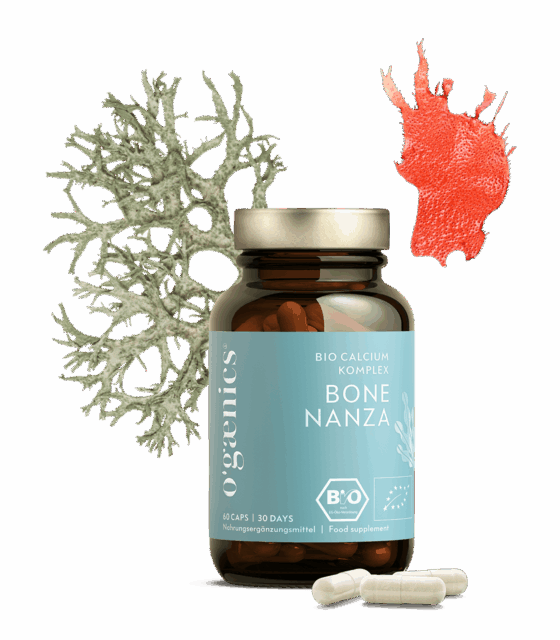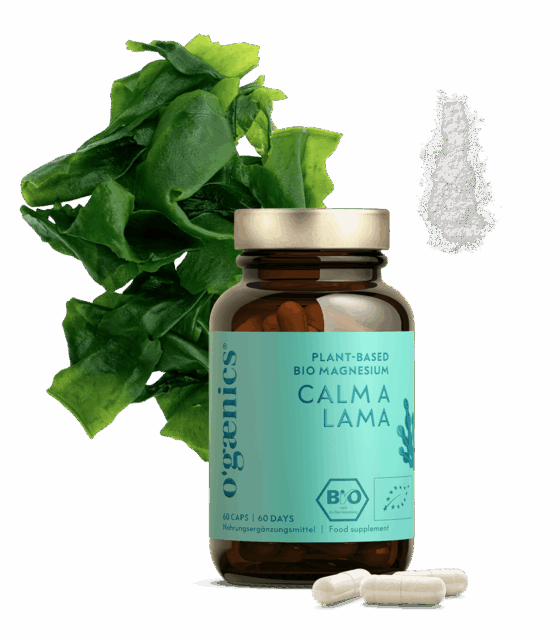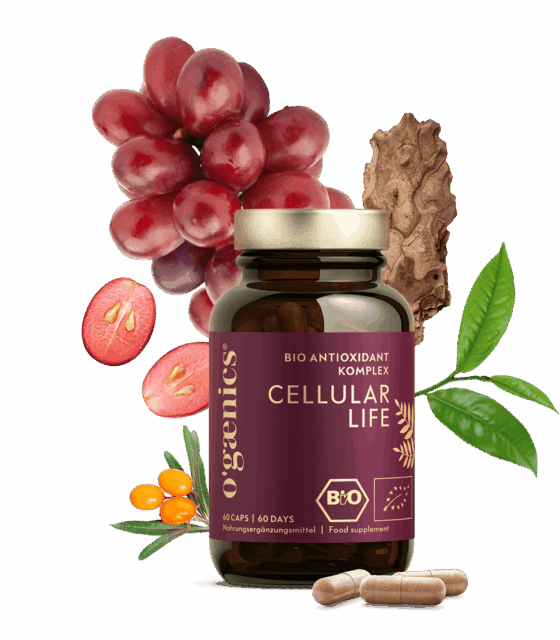Discover natural ways to lower high blood pressure and improve your cardiovascular health.
High blood pressure, also known as hypertension, is a common condition that poses significant health risks. In the European Union, around 22% of people aged 15 and over have reported high blood pressure, based on a 2019 survey.
According to the World Heart Federation, high blood pressure is the leading preventable risk factor for cardiovascular disease and mortality worldwide. In the European Union, 22% of adults aged 15 and over reported high blood pressure, although the percentage varies from country to country. Germany is no exception, and cardiovascular disease represents a significant health burden.
In the context of the longevity movement, which focuses on a long and healthy life, the control of high blood pressure plays a central role. Well-regulated blood pressure is crucial for maintaining quality of life in old age and maximizing healthspan, i.e. the number of healthy years of life.
What is high blood pressure?
High blood pressure occurs when the resistance in the arteries is increased, forcing the heart to pump harder to transport blood around the body. Chronically high blood pressure leads to a thickening and hardening of the arterial walls (arteriosclerosis), which restricts the blood supply to the organs and increases the risk of cardiovascular diseases such as heart attack and stroke.
Symptoms of high blood pressure
High blood pressure is often referred to as the “silent killer” as it usually occurs without any noticeable symptoms. Many signs that can indicate high blood pressure are rather unspecific and can therefore easily be attributed to other diseases:
- Sleep disorders
- Hot flashes
- Headache
- Dizziness
- Ringing in the ears
- Nosebleed
- Visual disturbances (eye flickering, blurred perception)
- Palpitations
- Red face
- Erectile dysfunction
Some of these symptoms, such as hot flushes and insomnia, can also be symptoms of the menopause or perimenopause in women. It can therefore happen that these symptoms are not correctly attributed to women and existing high blood pressure is overlooked.
Why is high blood pressure so dangerous?
High blood pressure increases the risk of cardiovascular disease, which is the most common cause of premature death worldwide. It not only shortens lifespan, but also significantly impairs quality of life. A heart attack or stroke as a result of high blood pressure can lead to permanent physical and cognitive impairment, limiting autonomous living and reducing the ability to enjoy life in old age.
High blood pressure and the resulting cardiovascular diseases are therefore a direct threat to your quality of life and healthy ageing.
What causes high blood pressure?
High blood pressure, also known as hypertension, can be caused by a variety of factors. There are two main types of hypertension: primary (or essential) hypertension and secondary hypertension. The causes vary depending on the type:
High blood pressure without a recognizable cause (apparently)
Also known as “primary hypertension”, it is the most common form and develops over time without a clear cause. It is assumed that a combination of genetic, environmental and lifestyle factors play a role:
- Genetic predisposition: High blood pressure can run in families, suggesting that genes play a role in predisposition to high blood pressure.
- Age: The risk of high blood pressure increases with age, as the blood vessels become stiffer and blood pressure rises.
- Oestrogen deficiency in women: During the menopause, oestrogen levels in a woman’s body drop dramatically, which can lead to various health changes, including an increased risk of high blood pressure.
- Overweight and obesity: Being overweight increases the workload of the heart as more blood has to be pumped through the body, which increases the pressure on the arteries.
- Lack of exercise: A lack of physical activity can lead to obesity and weaken the cardiovascular system, which increases the risk of high blood pressure.
- Unhealthy diet: A diet rich in saturated fatty acids, salt (sodium) and low in potassium can increase blood pressure. Salt leads to water retention in the body, which increases blood pressure.
- Alcohol consumption: Excessive alcohol consumption can increase blood pressure as it impairs the function of the heart and blood vessels.
- Stress: Prolonged stress can lead to a temporary increase in blood pressure. If stress becomes chronic, it can contribute to high blood pressure in the long term.
High blood pressure caused by diseases
Secondary hypertension is less common and is caused by an underlying disease or medication. The most common causes include
- Kidney diseases: Diseases of the kidneys can disrupt the balance of salts and fluids in the body, leading to high blood pressure.
- Hormonal disorders: Disorders such as Cushing’s syndrome, hyperthyroidism or hyperaldosteronism can increase blood pressure.
- Sleep apnea: This sleep disorder, in which breathing stops during sleep, can lead to an increase in blood pressure.
- Medication: Some medications, such as certain antidepressants, painkillers (especially NSAIDs), birth control pills and nasal sprays, can increase blood pressure.
- Vascular diseases: Constrictions or hardening of the blood vessels (e.g. in atherosclerosis) can increase blood pressure.
- Drug abuse: The use of drugs such as cocaine or amphetamines can lead to dangerously high blood pressure.
High blood pressure and longevity
Ageing is a natural process in which the body undergoes degenerative changes over time. High blood pressure accelerates these ageing processes at a cellular and vascular level. Chronically high blood pressure leads to a thickening and hardening of the arterial walls (arteriosclerosis), which restricts the blood supply to the organs and increases the risk of cardiovascular disease.
Longevity research is working hard to understand the mechanisms of ageing and to find ways of slowing down these processes. Controlling blood pressure is one of the most effective ways of slowing down the biological ageing process. This leads to an improvement in quality of life and an extension of healthy life years.
Preventive measures against high blood pressure
Avoiding high blood pressure should be a central aspect of your healthy ageing strategy. Prevention plays a key role here. A healthy diet, regular exercise, stress management and avoiding harmful habits such as smoking and excessive alcohol consumption are decisive factors that can significantly reduce the risk of high blood pressure and associated cardiovascular diseases.
In addition, there is increasing interest in the role of dietary supplements and nutraceuticals that can naturally lower blood pressure, such as magnesium, calcium, potassium and vitamin E. In a recently published meta-analysis by Behers et al. (2023), the positive influences on blood pressure were demonstrated for these four nutrients. Targeted dietary supplementation is therefore a promising way to reduce the risk of high blood pressure and make a positive contribution to better health and longevity.
Natural dietary supplements to lower blood pressure
In addition to lifestyle changes, there are a growing number of studies investigating the effectiveness of certain dietary supplements in lowering blood pressure. The recently published systematic review and meta-analysis by Behers et al. has shown that certain vitamins and minerals can have a potentially positive effect on lowering blood pressure. Vitamins C, D, E, calcium, magnesium and potassium were examined.
It was found that magnesium and calcium had the greatest effect on lowering systolic and diastolic blood pressure, while vitamin E and potassium primarily lowered systolic blood pressure. Vitamins C and D had minimal effects on lowering blood pressure
- Magnesium: Can be taken in doses of up to 300 mg per day. Make sure to spread the intake throughout the day to avoid gastrointestinal complaints, e.g. one capsule of CALM A LAMA Plant-Based Magnesium from Ogaenics in the morning and one in the evening.
- Potassium: An intake of around 4,700 mg per day is recommended, preferably from potassium-rich foods such as bananas, oranges and spinach.
- Calcium: A daily intake of 1,000-1,300 mg is optimal, the majority of which should come from food. The purely plant-based BONE NANZA Bio Calcium Complex from Ogaenics supplements this.
- Vitamin E: A dosage of up to 400 mg per day can be useful for lowering systolic blood pressure.
-
Bestseller
Bone Nanza
Plant-based organic calcium complex from organic red lime algae with natural magnesium and vitamin D3ab 29,90 €486,18 € / kg
-
Bestseller
Calm A Lama
60-day supply of plant-based organic magnesium from premium organic green algae extract for muscles and nerves44,90 €1.076,74 € / kg
Food supplements with OPC are also exciting. OPC stands for oligomeric proanthocyanidins, a group of secondary plant substances that are mainly found in the seeds of grapes, apples, berries and some nuts. The bark of pine trees is also rich in OPCs. These compounds belong to the class of polyphenols and are valued for their strong antioxidant properties. A study on hypertensive rats showed that the administration of OPCs significantly lowered blood pressure. This was achieved by reducing oxidative stress and inflammation. You can find three different highly effective OPCs in the CELLULAR LIFE Antioxidant Complex from Ogaenics, for example.
-
Cellular Life
60-day supply: Best organic cell protection complex with nature's most powerful antioxidants for your longevity69,90 €1.815,58 € / kg
Conclusion:Discover natural ways to lower high blood pressure
Behers, B.J.; Melchor, J.; Behers, B.M.; Meng, Z.; Swanson, P.J.; Paterson, H.I.; Mendez Araque, S.J.; Davis, J.L.; Gerhold, C.J.; Shah, R.S.; et al. Vitamins and Minerals for Blood Pressure Reduction in the General, Normotensive Population: A Systematic Review and Meta-Analysis of Six Supplements. Nutrients 2023, 15, 4223. https://doi.org/10.3390/nu15194223
Iqbal, I.; Wilairatana, P.; Saqib, F.; Nasir, B.; Wahid, M.; Latif, M.F.; Iqbal, A.; Naz, R.; Mubarak, M.S. Plant Polyphenols and Their Potential Benefits on Cardiovascular Health: A Review. Molecules 2023, 28, 6403. https://doi.org/10.3390/molecules28176403
Yu X-J, Xin G-R, Liu K-L, Liu X-J, Fu L-Y, Qi J, Kang KB, Meng T-T, Yi Q-Y, Li Y, Sun Y-J and Kang Y-M (2021) Paraventricular Nucleus Infusion of Oligomeric Proantho Cyanidins Improves Renovascular Hypertension. Front. Neurosci. 15:642015. doi: 10.3389/fnins.2021.642015
Paolisso, G et al. “Plasma vitamin C affects glucose homeostasis in healthy subjects and in non-insulin-dependent diabetics.” The American journal of physiology vol. 266,2 Pt 1 (1994): E261-8.
Ness, A R et al. “Vitamin C and blood pressure–an overview.” Journal of human hypertension vol. 11.6 (1997): 343-50.












 No products in the cart.
No products in the cart.